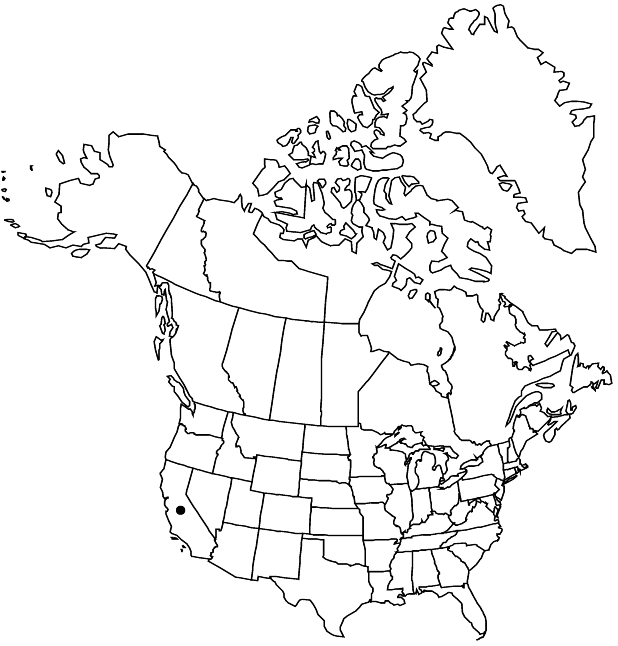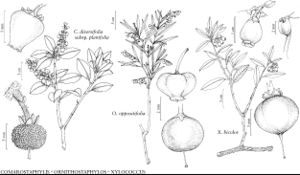Ornithostaphylos oppositifolia
in N. L. Britton et al., N. Amer. Fl. 29: 101. 1914,.
Shrubs to 2 (–5) m. Leaves usually 3 (–5) per node; petiole to 6 mm; blade whitish abaxially, light to deep green adaxially, 2.5–8 cm × 3–6 mm, base tapering to petiole, apex acute to mucronate. Inflorescences: axes sometimes reddish purple, minutely tomentose. Pedicels slender, much longer than flowers; bracteoles minute. Flowers: calyx lobes ca. 1 × 1 mm, apex obtuse; corolla 3–4 mm, lobes recurved, apex obtuse; anther awns nearly as long as sacs; ovary villous; style often persistent, included or slightly exserted. Drupes 4–6 mm diam.
Phenology: Flowering Jan–Apr; fruiting May–Aug.
Habitat: Coastal chaparral
Elevation: 100-800 m
Distribution

Calif., nw Mexico (n Baja California)
Discussion
Ornithostaphylos oppositifolia is known in the United States from a single mesa and adjacent slopes in the Tijuana Hills just north of the international border with Mexico in San Diego County. Only 103 individuals have been located on the United States side of the border, and the species is listed as endangered under the California Endangered Species Act. The population has been declining due to habitat fragmentation by roads and trails and disturbance caused by illegal border crossings and Border Patrol activities, including “brush” clearing. Recently, the extensive disturbance caused by the building of a double border fence has dramatically affected the population, and its long-term survival is uncertain.
Selected References
None.
Lower Taxa
"/3" is not declared as a valid unit of measurement for this property. "/4" is not declared as a valid unit of measurement for this property.
